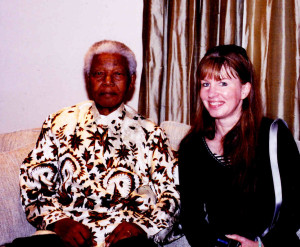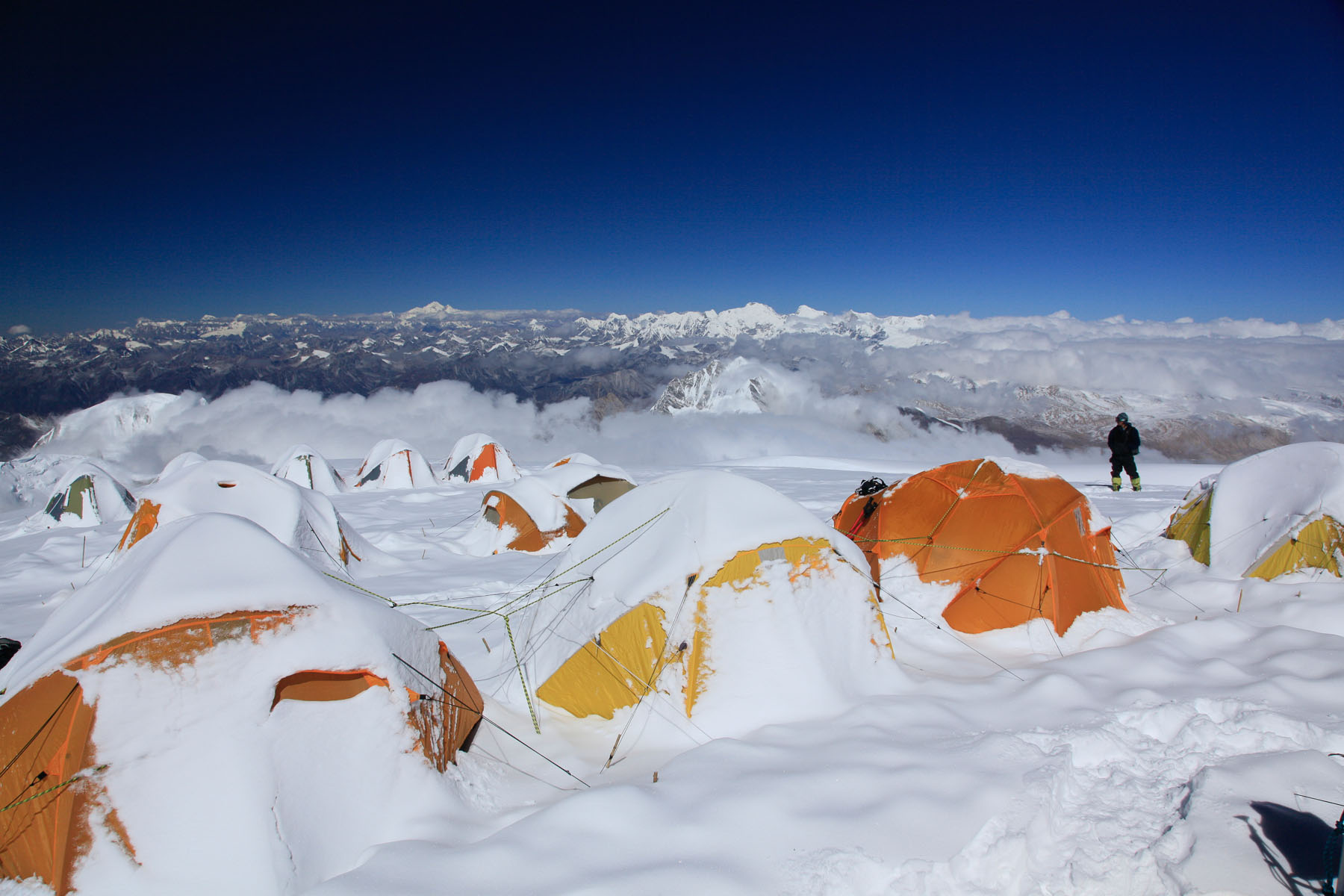As Nelson Mandela lingers in a South African hospital, the world reflects on the tremendous legacy of this man, who so valiantly fought for individual rights realizing profound changes that many thought were unachievable. Today many of his inspirational contributions are fostered through the Nelson Mandela Foundation, which in the course of the pursuit of social justice seeks to promote “peace, human rights and democracy”. Situated in the one of the more lushly elegant areas of Johannesburg, The Foundation is a world apart from Robben Island, where Nelson Mandela was detained for years under wretched conditions as a political prisoner. On a typical day behind the high brick wall, this organization’s sleek, gleaming surfaces reflect a flurry of activity, all stemming from the inspired voice of South Africa’s most revered icon. Despite having retired from official office in 1999, Nelson Mandela or Madiba as he is often affectionately referred to, has remained very much at the epicenter of South Africa’s national pulse. By early morning the parking lot can often be seen loaded with television crews, reflective screens and lighting sets in preparation for the day’s interviews. Inside, more crews are often waiting in designated rooms, further evidence of a life, which despite attempts to decrease his public appearances has remained replete with duties and responsibilities. The existence of a mobile coffee cart, on hand specifically to be shuttled from group to group, indicates that this level of activity hardly represents an atypical scenario.
Born in 1918, he was just 17 when in 1935 the South African government eliminated the majority of the black voting rights, the ability to hold parliamentary seats and imposed strict limitations on the rights to own land. In 1946, by the time he was 28, apartheid was instituted meaning that blacks traveling outside of their reserves required passes, interracial marriage was forbidden and the meager voting rights that they still held were effectively eradicated. Today as South Africa continues to increase its visibility as a global participant, it is hard to imagine that it has been only approximately two decades since the introduction of the new Constitution, effected when the African National Congress (ANC) came to power with Mandela at the helm. However despite these symbolic breakthroughs at that time the ANC had inherited an economic quagmire, representing high budget deficits, inequitable and destabilizing business ownership structures and a myriad of sanctions that had long obliterated any chance for global market competitiveness. Despite resistance, the ANC bravely embraced free-market policies as the most effective means to restore and build a competitive market economy. Although still plagued with economic frailty, high unemployment, crime and rampant HIV/AIDS infections, political change has gradually realigned control of the country’s wealth, many industry sectors have gained momentum, and investment has increased. Nelson Mandela’s concept of a “rainbow nation” is very much in evidence, from the black and white voters that line the streets, to the mixture representing employees at numerous private and public concerns. Nelson Mandela is very much the man who is credited with this South African transformation, and for this, the myriad of TV crews that often wait outside in the parking lot to get his insight and opinion on every facet of the country he has so devotedly molded.
When I first meet him a few years ago, Nelson Mandela presented an unforgettably stately figure. Tall, thin and still boasted an almost regimental posture, a crescent of tufted white hair wreathed despite his advanced years, a remarkably radiant and youthful complexion. Gracefully attired in a tasteful coffee and cream- colored African floral patterned top, his serene demeanor gives scant indication of the turmoil and hardship that he has endured. In the private living room type setting he was gently guided by his aids to the overstuffed sofa his eyes have been damaged by his long years of incarceration. Throughout our discussion Mandela maintains a calm and serious demeanor. Despite the clamor-taking place just beyond the doorway, Mandela gives us the sense that he has all the time in the world, perhaps representing the placidity one gleans after so many years of incarceration. However this solemnity is in surprising contrast to the image of the dancing, laughing figure that has so often been depicted in the past by the press. It is only when I ask him to smile that this side of the persona so familiar to the world is revealed. “I thought that you wanted me to look serious” he rejoins.

Below a few excerpts from our discussion that day, Nelson Mandela through deeds, thoughts and achievements continues to bequeath the world with his everlasting hope and optimism.
LK: Your life has spanned an early period of relative freedom, followed by the imposition of restrictions, your long detention and ultimately again freedom. Could you describe what freedom means to you today, and what is the difference as compared to your early years of freedom?
NM: One can debate whether that first period to which you refer was really one of freedom. Freedom is not only the absence of being in jail, just as it is always said that peace is not merely the absence of war. We went to jail- that long detention to which you refer- because of our struggle against the oppression, discrimination and exploitation of our people. That was not a state of freedom. In fact no black South African could be said to have been free in those circumstances and times. One cannot therefore compare two periods of freedom.
The freedom for which [we] struggled all our lives and for which so many people over so many decades sacrificed, was a state in which all people would have the opportunities to optimally realize their human potential; where human solidarity and human caring would be supreme values; where human dignity and equality would be primary values.
I am confident that democratic South Africa, the state of freedom for which we struggled, aspires towards those values and goals.
LK: Your confinement represented a period spanning 27 years, often under appalling conditions, how did you sustain yourself throughout this lengthy imprisonment?
NM: One’s imprisonment was never only, or even primarily, the fate of an individual. The acts that led up to arrest and imprisonment were not individually inspired deeds but the collectively planned conduct of an organization and movement representative of the masses of the people. Our presence in prison was that of a collective of comrades. Mentally and spiritually we supported one another and were collectively sustained by the knowledge that we were there on behalf of the people. Of course one had to cope as an individual but that was made infinitely easier by the knowledge that we were acting for a moral cause.
LK: As the 21st century opens to the trauma of one of the most conflicted eras of ideological and political differences, what do you consider greatest roadblocks for peace today?
NM: At the end of the Second World War the world placed its faith in the international multi-lateral organs to ensure that conflicts were resolved through peaceful means. It was hoped that a New World order of democracy and equality between nations could be developed and that the multilateral organs would take developmental issues seriously so that dissent and conflict would not fester amongst the poor and the weak across the globe.
That has unfortunately not happened, or not happened sufficiently. The multi-lateral organizations have too often become the tools for the interests of the rich and powerful. The tragedy of Iraq is but one example of the folly of undermining multilateralism.
We must return to the belief on which the United Nations was founded; that all conflicts should be settled through peaceful means and through the various multilateral organizations. This would include conflict prevention where we observe conflict to be developing.
LK: Although the origins of the South African transformation were revolution based, ultimately the transfer of power was accomplished peacefully “through cooperation and the discouragement of violence”. What can be used from the South African example as a roadmap to peace?
NM: We must be careful not to project our unique circumstances too much on other situations. People can often take offense at what may be perceived as South African arrogance if we were to do that. I always took great care in mediation, like for example in Burundi, not to refer to South Africa as a model.
(Authors note; In October 2002, a summit meeting took place in Tanzania, in effort to resolve the decade-old conflict in Burundi, estimated to have claimed more than 250,000 lives. Nelson Mandela attended this summit in the capacity of Facilitator to ensure that necessary decisions were taken to end the violent conflict and adopt a permanent ceasefire.)
What we did, however, demonstrate is that people have the capacity to put reason above emotion even in the seemingly most intractable situations of conflict. Our leaders confounded all the predictions of doom by sitting down to negotiate a peaceful settlement of our differences. If we could do that, it should be possible in other situations as well.
LK: What are your hopes for South Africa’s future? Are you optimistic?
NM: I am very optimistic about the future of South Africa. To have overcome our historic differences and to have established so firmly within one decade the foundations of a healthy non-racial democracy speak for itself about the future of this country. We have one of the most admired democratic constitutions, the organs of democracy are functioning, our economy is brilliantly managed, basic services are steadily being brought to people, and the future looks good. Of course, the challenges of development remain enormous, but we have the human and material wherewithal to tackle these.
Lorie Karnath is an avid explorer, adventurer, author who has canvased the globe in search of answers to elusive questions. Most recently she served for three terms as the 37th president of The Explorers Club only the second woman in the club’s 108 year history to be elected.




It is brilliant how this conversation/interview brings out the parallel ideas of individuals in society being able to MEET equally, with the idea of nations being able to MEET multi laterally [hint especially @ the UN]. As Mandela is saying, meeting is always better than conflict. It is the necessary step. However there is the sense of caution: arrangements between people and countries can be very conflicted and brutal. One of our planets greatest diplomatic and activist leaders, and still among us.